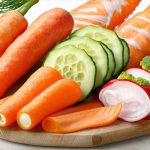Recovering from illness, surgery, or intense physical exertion often places significant stress on your digestive system. When your body is focused on healing, it needs easily digestible foods that won’t require extra effort to process. This allows more energy to be directed toward recovery and minimizes discomfort like bloating, gas, or diarrhea. Focusing on gentle nourishment isn’t about restrictive dieting; it’s about strategically choosing foods that support your body’s natural healing processes. It’s a temporary adjustment designed to aid in regaining strength and wellness.
The goal is to avoid burdening the digestive system with complex carbohydrates, high-fat foods, or anything overly stimulating. Think of it as offering your gut a break while providing essential nutrients. This approach isn’t just for those recovering from acute events; it can also benefit individuals dealing with chronic digestive issues like IBS or sensitivities.
Understanding Digestive Stress and Food Choices
When you’re unwell, your body’s resources are diverted to repair and restoration. Digestion becomes less efficient because blood flow is prioritized elsewhere. Foods that typically wouldn’t cause problems might now lead to discomfort. This isn’t a sign of food intolerance necessarily; it’s simply a temporary physiological response. The key is to select foods that require minimal digestive effort, reducing the strain on your system and allowing for optimal nutrient absorption.
Choosing easily digestible options supports gut health during vulnerable times. A healthy gut is crucial for overall wellness, playing a vital role in immunity and inflammation management – both incredibly important during recovery. This approach isn’t about deprivation; it’s about supporting your body with mindful food choices that promote healing and comfort. Think of it as offering your system the best possible chance to rebuild and thrive.
Gentle Foods for Optimal Recovery
The cornerstone of a recovery diet lies in simple, whole foods. Lean proteins are preferred over fatty cuts of meat, as they’re easier to break down. Cooked vegetables are generally better tolerated than raw ones, reducing fiber content which can be challenging when digestion is compromised. Fruits should also be chosen carefully – low-acid options like bananas and cooked apples are excellent choices. Hydration is paramount; water, herbal teas, and clear broths help maintain fluid balance and aid in the digestive process.
Avoid foods known to cause inflammation or digestive upset, such as processed foods, sugary drinks, caffeine, alcohol, spicy dishes, and excessive amounts of dairy. These can further irritate the gut and hinder recovery efforts. Small, frequent meals are often more manageable than large ones, preventing overwhelm for a sensitive system. Listen closely to your body; what feels good to one person may not feel good to another.
Soothing Options: Specific Food Examples
Bananas are an excellent starting point – easily digested and rich in potassium, which can be depleted during illness or exertion. White rice is gentler on the stomach than brown rice due to its lower fiber content. Plain yogurt (if tolerated) provides probiotics that support gut health, but avoid versions with added sugar. Chicken broth offers hydration and electrolytes, while poached chicken breast delivers lean protein without excessive fat.
Applesauce (unsweetened) is another great choice, offering a soft texture and easily digestible carbohydrates. Oatmeal, cooked with water rather than milk, provides soluble fiber that can be soothing to the digestive tract. Mashed sweet potatoes are rich in vitamins and minerals and are generally well-tolerated. Remember to introduce new foods gradually to assess your tolerance levels; what works one day might not work another depending on how you’re feeling.
Hydration & Electrolyte Balance
Staying adequately hydrated is absolutely vital during recovery. Water should be the primary source of hydration, but electrolyte imbalances are common after periods of vomiting, diarrhea, or intense sweating. Clear broths and herbal teas (like chamomile or ginger) can help replenish fluids and electrolytes. Coconut water is a natural source of electrolytes that’s often well-tolerated.
Avoid sugary drinks, as they can exacerbate digestive issues. Pay attention to the color of your urine – pale yellow indicates adequate hydration, while dark yellow suggests you need to drink more fluids. Remember that individual hydration needs vary based on activity level and climate.
Ultimately, recovery is a process, and dietary adjustments are just one part of it. Prioritize rest, gentle movement when possible, and listening to your body’s signals. Focus on providing nourishment that supports healing without adding unnecessary strain. This mindful approach will help you regain strength and wellness more effectively.


















